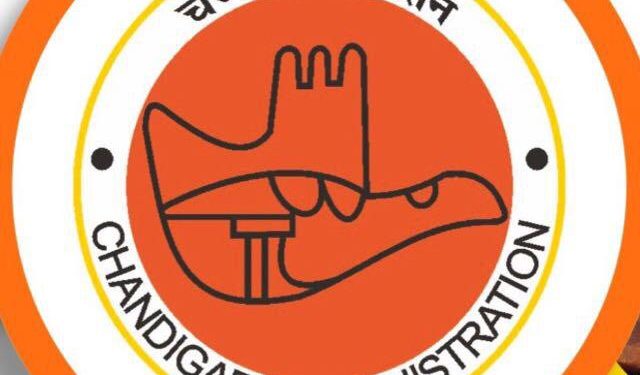Chandigarh, July 31, 2020: Chandigarh Administration has issued the following Unlock 3 guidelines which will be applicable from August 1, 2020 to August 31, 2020:
(a) Sukhna Lake will remain closed on weekends. Entry of all visitors will remain banned on Saturdays & Sundays.
(b) Odd-even system in certain specified congested markets will be re-introduced from time to time.
(c) All markets will close by 08:00 PM, except for the eating establishments, which can remain open till 09:00 PM. However, the exemption to essential shops; such as medicines shops etc. will continue.
(d) The curfew period from 10:00 PM to 05:00 AM will continue.
These orders will come into force with immediate effect.
Any violation will be punishable under provisions of Section 51 to 60 of Disaster Management Act, 2005, apart from action under Section 188 of IPC and other legal provisions, as applicable.
In areas outside the Containment Zones, all activities will be permitted, except the following:
(i) Schools, colleges, educational and coaching institutions will remain closed till 31st August, 2020. Online distance learning shall continue to be permitted and shall be encouraged.
(ii) Cinema halls, swimming pools, entertainment parks, theatres, bars, auditoriums, assembly halls and similar places. Yoga institutes and gymnasiums will be allowed to function from 5th August 2020 for which, Standard Operating Procedure (SOP) will be issued by the Ministry of Health & Family Welfare (MOHFW).
(iii) International air travel of passengers, except as permitted by MHA.
(iv) Metro Rail.
(v) Social/ political/ sports/ entertainment/ academic/ cultural/ religious functions and other large congregations. Dates for re-starting the above activities may be decided separately and necessary SOPs shall be issued for ensuring social distancing and to contain the spread of COVID-19.
Independence day functions
Independence day functions at National, State, District, Sub-Division. Municipal and Panchayat levels and ‘At Home’ functions, wherever held, will be allowed with social distancing and by following other health protocols e.g. wearing of masks.
Lockdown limited to Containment Zones
(i) Lockdown shall continue to remain in force in the Containment Zones till 31st August, 2020.
(ii) Containment Zones will be demarcated by the District authorities after taking into consideration the guidelines of MoHFW for effectively breaking the chain of transmission. These Containment Zones will be notified on the websites by the respective District Collectors and by the States/UTs and information will be shared with MOHFW.
(iii) In the Containment Zones only essential activities will be allowed.
There shall be strict perimeter control to ensure that there is no movement of people in or out of these zones, except for medical emergencies and for maintaining supply of essential goods and services. In the Containment Zones, there shall be intensive contact tracing, house-to-house surveillance, and other clinical interventions, as required. Guidelines of MoHFW shall be effectively implemented for the above purpose.
(iv) Activities in the Containment Zones shall be monitored strictly by the State/ UT authorities, and the guidelines relating to containment measures in these zones shall be strictly implemented. (v) States/ UTs may also identify Buffer Zones outside the Containment Zones, where new cases are more likely to occur. Within the buffer zones, restrictions as considered necessary may be put in place by the District authorities.
5. States/ UTs, based on their assessment of the situation, may prohibit certain activities outside the Containment zones, or impose such restrictions as deemed necessary. However, there shall be no restriction on inter-State and intra-State movement of persons and goods including those for cross land-border trade under Treaties with neighbouring countries. No separate permission/ approval/ e-permit will be required for such movements. Movement of persons with SOPs Movement by passenger trains and Shramik special trains; domestic passenger air travel; movement of Indian Nationals stranded outside the country and of specified persons to travel abroad; evacuation of foreign nationals; and sign-on and sign-off of Indian seafarers will continue to be regulated as per SOPs issued.
Protection of vulnerable persons
Persons above 65 years of age, persons with co-morbidities, pregnant women, and children below the age of 10 years are advised to stay at home, except for essential and health purposes. Use of Aarogya Setu (i) Aarogya Setu enables early identification of potential risk of infection,
and thus acts as a shield for individuals and the community.
(ii) With a view to ensuring safety in offices and work places, employers on best effort basis should ensure that Aarogya Setu is installed by all employees having compatible mobile phones. (iii) District authorities may advise individuals to install the Aarogya Setu application on compatible mobile phones and regularly update their health status on the app.
Face coverings: Wearing of face cover is compulsory in public places; in workplaces; and during transport. Social distancing: Individuals must maintain a minimum distance of 6 feet (2 gaz ki doori) in public places. Shops will ensure physical distancing among customers. Gatherings: Large public gatherings/ congregations continue to remain prohibited. Marriage related gatherings : Number of guests not to exceed 50. Funeral/ last rites related gatherings : Number of persons not to exceed 20. Spitting in public places will be punishable with fine, as may be prescribed by the State/ UT local authority in accordance with its laws, rules or regulations. Consumption of liquor, paan, gutka, tobacco etc.in public places is prohibited.
Additional directives for Work Places Work from home (WfH): As far as possible the practice of WfH should be followed. Staggering of work/ business hours will be followed in offices, work places, shops, markets and industrial & commercial establishments. Screening & hygiene: Provision for thermal scanning, hand wash or sanitizer will be made at all entry points and of hand wash or sanitizer at exit points and common areas. Frequent sanitization of entire workplace, common facilities and all points which come into human contact e.g. door handles etc., will be ensured, including between shifts. Social distancing: All persons in charge of work places will ensure adequate distance between workers, adequate gaps between shifts, staggering the lunch breaks of staff, etc.








